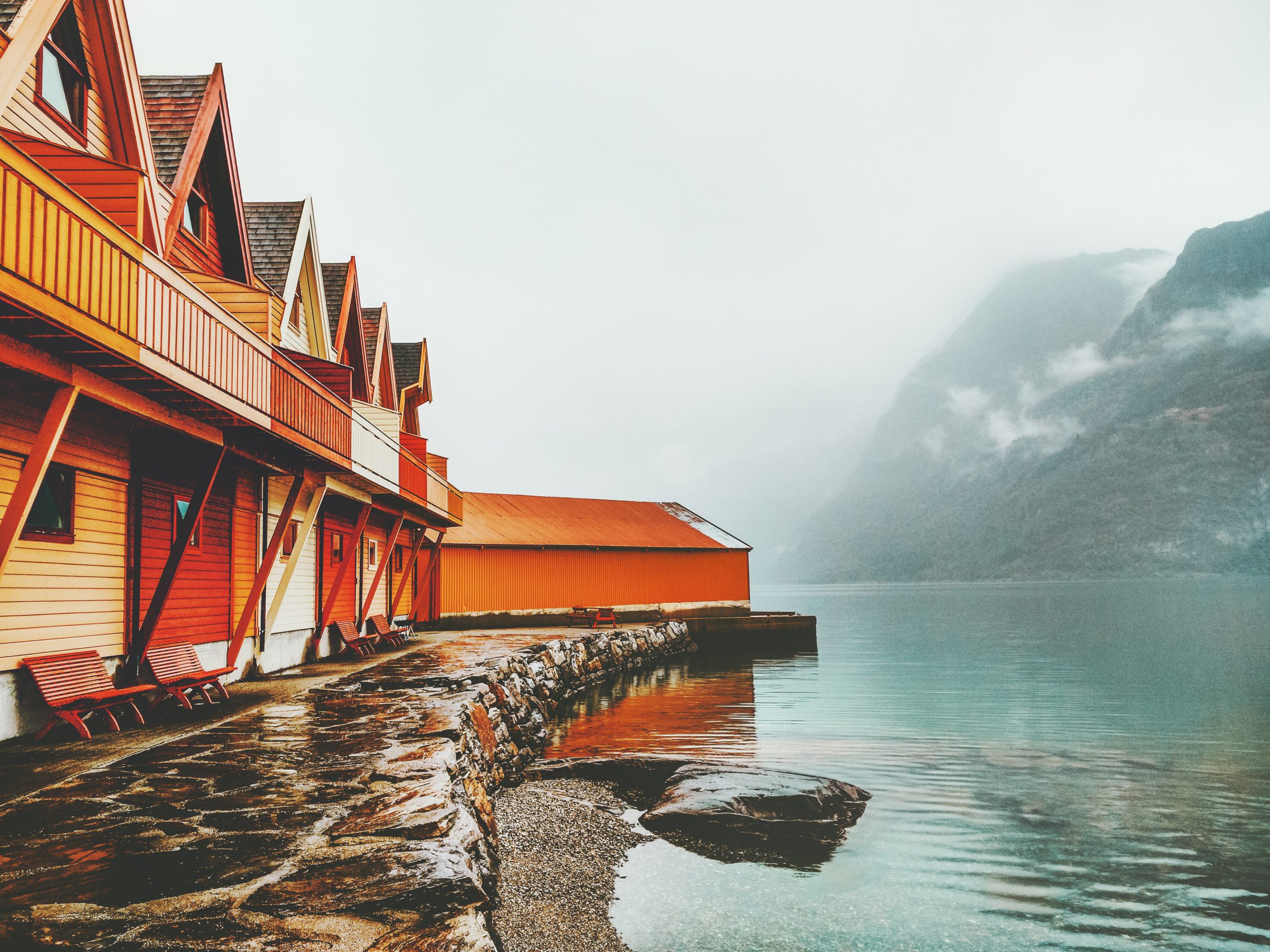It is unnecessary to be a rocket scientist to establish an Airbnb company. True, finding a home and converting it into a guest-ready vacation rental is time-consuming. However, the satisfying experience will make all of the preparatory effort worthwhile.
If you’re drawn to the world of real estate, here’s how to establish an Airbnb company from scratch.
Steps to Creating a Successful Airbnb Business
Starting an Airbnb company may rapidly become daunting if you do not follow a step-by-step method. By breaking things down into smaller, more manageable stages, you reduce the likelihood of making a costly error along the road. To assist you in starting an Airbnb company, we have selected 12 actions that will assist you in launching and growing your new enterprise into a profitable Airbnb business.
1. Establish a budget
Before you begin your property search, you should determine how much money you are willing to purchase or establish an existing one. Additionally, you should consider the cost of furnishing the house and ongoing expenditures such as holiday rental insurance or cleaning. Therefore, consider these costs when determining how much you can afford to spend.
2. Locate an appropriate real estate market
There are a few variables to consider while looking for an appropriate market to invest in a vacation rental home. These include the following:
- Increased tourist demand
It is critical to study the effect that a certain location might have on demand. For instance, cities with distinct characteristics and tourism attractions might demand year-round. This is not always the case, though.
For instance, if tourists visit a city to attend a certain event, your demand will correlate to these calendar days. However, demand will often vary as the seasons change.
- Local laws and ordinances
Local governments worldwide have begun to enact laws and regulations governing short-term rentals. Vacation rentals may be prohibited entirely in certain places, while others have tightened their regulations. Therefore, before starting an Airbnb company, it is prudent to consult local government websites and other internet resources to determine the venture’s viability.
3. Look for a home with high revenue potential
Not only will the real estate market affect your earning potential, but also on the actual property. Consider the following things to assist you in locating the most suitable home with the greatest earning potential:
- The location of the property
Is the property easily accessible? Is it near tourist attractions or retail establishments, cafés, and bars? Is it accessible through various modes of transport? Before investing in a particular rental property, accessibility to your property, its closeness to amenities, and steady demand will all contribute to your income flow throughout the year.
- The kind and size of the property
Once you’ve established your budget, you can use it to help you determine the kind and size of home you can afford. While larger accommodations might command a higher nightly rate, smaller homes can benefit from adding a bunk bed or sleeper sofa. A studio apartment and a triple-story family house are viable holiday rental properties. In summary, the property’s kind and size should not exceed your budget.
- The kind of tourists attracted to the property
Diverse sorts of properties appeal to a diverse range of travelers. For instance, if your objective is to host families with small children or larger groups, it is prudent to invest in larger residences, especially in a quiet area.
On the other hand, a smaller apartment or condo in a vibrant metropolitan area is preferable if you want to attract younger visitors or couples. Additionally, if you want to attract business visitors, you should seek a convenient hotel to public transportation and conference centers that still offer a calm environment.
4. Conduct a return on investment analysis
The next step is to determine the prospective earnings on the chosen property by comparing it to comparable listings in the region. Not only should you monitor competitor pricing, but you should also consider launch costs, continuing expenditures, and predicted monthly occupancy rate. You can determine if the property will provide a positive cash flow in this manner.
Competitive analysis and ROI estimates may be aided by data analytics technologies such as Alltherooms, AirDNA, and Transparent. From analytics to property predictions to market insights, these tools can aid you in gaining a deeper understanding of the sector. In brief, these software solutions may assist you in staying current with industry trends and changes.
5. Determine the method through which you will finance your home.
If you want finance to purchase an investment property, you have a few possibilities. These include the following:
- Refinance with cash-out
In this situation, cash-out refinancing may be used to purchase a vacation rental property. This is the ideal option if you have considerable equity in your main house and a decent credit score. With a larger mortgage, you may utilize the cash difference to put down your short-term rental property.
- Convertible mortgage
For people aged 62 years or older, a reverse mortgage may be the ideal option. Unlike a traditional mortgage, which needs monthly payments, a reverse mortgage allows you access to the whole amount and requires no repayment until you sell the house or leave. Bear in mind that the mortgage interest owing will continue to climb as long as the loan is not paid in full.
- Lines of credit for a home equity
You may use a home equity line of credit to acquire a short-term rental property if you have enough equity in your present house. In this manner, you may maintain your existing mortgage rate while taking up a new mortgage with alternative terms and conditions.
- Financing for traditional vacation rentals
To finance a property more traditionally, you may always apply for a bank or credit organization loan. You may be required to make an initial down payment and then repay the remainder in monthly payments over the following 15 or 20 years.
6. Obtain all necessary permits and permissions
Before you begin hosting on Airbnb, you must ensure that you possess the legal authority to rent out a short-term rental home. To be safe, follow these steps:
- Research the legal rules governing Airbnb in your city to see whether there are any limitations.
- Research the zoning legislation and standards applicable to the region in which you want to operate
- Consult a business attorney for assistance in starting your Airbnb company
- Register your business and ensure you are certified to host short-term rental stays
7. File your taxes
Like any other company owner, an Airbnb entrepreneur will be required to pay taxes. It is critical to investigate tax rates and kinds of taxes to be paid and the deductions available to short-term rental owners. Therefore, engage a tax professional specializing in short-term rentals to aid you in determining the applicable taxes and fees.
8. Insure your vacation rental property
While sites like Airbnb and Vrbo provide some safety, many circumstances remain unprotected, such as cash theft or deliberate property damage. In summary, many protection insurances fall short of providing adequate coverage, particularly for more significant concerns.
While holiday rental insurance may cost up to three times as much as homeowner’s insurance, it is advisable to invest in insurance created expressly for vacation rental enterprises. In the United States of America, the typical cost of vacation rental insurance is between $2,000 and $3,000 per year. However, it might be considerably greater if your house is situated in a renowned tourist area such as Florida.
9. Prepare your vacation rental for visitors
Before welcoming guests, you must do necessary maintenance, property repairs, and thorough cleaning. Additionally, you will need to establish a seamless check-in procedure before taking reservations.
If the check-in procedure becomes too complicated or irritating, visitors may get dissatisfied. Here are a few critical procedures to guarantee your visitors have an easy and flawless arrival:
- Add an Airbnb lockbox or a smart lock to enable self-check-in.
- Before your next guests come, edit and update your lockbox or smart lock passcode.
- Provide clear and simple check-in instructions to your visitors so they can enter your property.
10. Make a significant investment in high-quality fundamental facilities (and add extra touches)
Your vacation rental property must include a comprehensive selection of amenities to ensure that your visitors have an enjoyable stay. If your rental lacks necessities such as kitchenware, bathroom supplies, or even a decent night’s sleep, visitors may get upset. Guests should not be required to bring any items. A poorly-equipped establishment will result in a substandard visitor experience and unfavorable evaluations.
While supplying the essentials is critical, other amenities are also necessary to create a pleasant stay. Going above and above in terms of facilities can help you show yourself as a kind host. The following are some of the additional amenities that may be included:
- A hot tub;
- Wi-Fi boosters;
- A workstation;
- Board games;
- Smart gadgets;
- Bathrobes and slippers;
Additionally, creating a welcome gift is a fantastic idea. This sort of added touch distinguishes seasoned hosts from novices. A welcome package including a few nibbles may transform an average visit into one to remember. Consider it an opportunity to not only wow your visitors but also to use your creative abilities.
Follow this checklist to create a thoughtful welcome package that will ensure visitors have an enjoyable stay with you:
- Write a welcome letter to make visitors feel as though they have been personally welcomed to your property.
- Create a welcome book that includes essential information such as the Wi-Fi password, your cellphone number, and email address, as well as instructions on how to set the alarm and use the oven.
- Create a set of house rules outlining the dos and don’ts at your home.
- Include a welcome gift as an added touch that will encourage visitors to submit a positive review.
11. Decide on the most appropriate vacation rental platform
Once your house is fully equipped and prepared, you may begin selling it on a vacation rental website (s). This process will be guided by the sort of audience you’re attempting to attract and the intended market.
However, a word of caution: making an Airbnb listing takes time and requires some thinking and ingenuity. You want it to accurately represent your rental and seem as professional as possible. When generating your listing, ensure that the following procedures are completed:
- Photograph your property professionally or hire a photographer to get images that showcase your rental’s primary features and amenities.
- Write a descriptive property description that will appeal to prospective guests by emphasizing your home’s distinctive qualities
- Create a creative and catchy title for your listing that describes what your rental provides visitors
- Create a host profile with a brief description of yourself
12. Automate regular web hosting tasks
Automating numerous hosting activities enables you to concentrate on what matters most. By using vacation rental software, such as Lodgable, you can assure the seamless operation of your company while you focus on improving the guest experience and developing your business. Lodgable will save you time and effort by
- Managing multiple accounts and listings on the major vacation rental platforms
- Managing direct bookings using a direct booking management toolkit
- Receiving payouts and creating invoices by connecting your Stripe account to Lodgable









